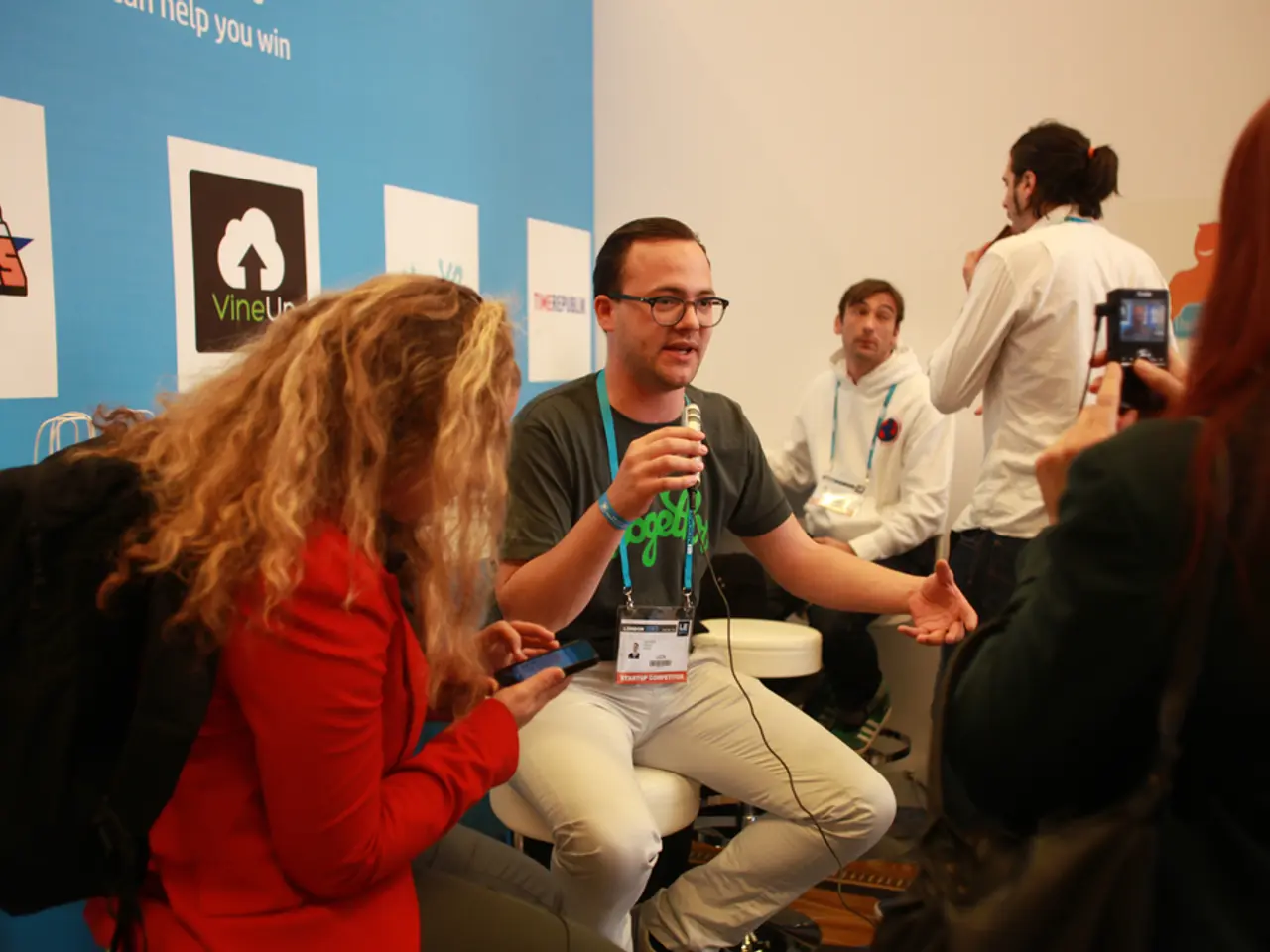Digital Traces Become Preferred Hiring Method for Emerging Careers
The practice of social media screening in job applications has become a significant factor, particularly affecting young people, especially Gen Z. This scrutiny delves into the extensive digital footprints of candidates, including comments, interactions, and more, on platforms like TikTok, Instagram, and X (formerly Twitter) [1][3].
Younger generations, who are more active and expressive on these platforms, may face unique challenges as recruiters increasingly evaluate content from these platforms to gauge personality, values, and behaviour [3]. One concern is that these assessments could inadvertently bias evaluation, potentially overlooking the diversity of backgrounds and perspectives valued by young applicants.
The Impact on Gen Z
Gen Z, who came of age online, may find their 'searchable self' [4] under scrutiny. This online presence, which includes social media posts, liked or shared content, comment threads, tagged photos, event check-ins, and contributions to online communities, can significantly impact their chances of being hired [1].
Moreover, Gen Z places a high emphasis on employer commitment to diversity, equity, and inclusion (DEI) [2]. They may react negatively if perceived employer policies or social media screenings seem to conflict with authentic and inclusive values.
Balancing Fairness and Thoroughness
To ensure fair evaluation during social media screening, companies can adopt several measures. First, recruiters should limit social media checks to platforms and content relevant to the job role [3].
Second, the use of AI tools should be transparent and adhere to privacy laws to prevent discriminatory or unfair outcomes [3].
Third, employers should establish clear policies on what types of social media content are appropriate grounds for screening decisions and train HR staff to avoid unconscious bias [3].
Fourth, informing applicants about social media screening practices and, where possible, allowing candidates to provide context or explanations for flagged content can promote transparency and fairness [3].
Lastly, screening methods should support and not undermine commitments to diversity, equity, and inclusion [2].
The Role of Digital Literacy
In the digital era, first impressions are primarily shaped by a candidate's online presence. Digital literacy and compassion on the part of hiring managers will determine whether social media is a career maker or killer. As more employers adopt social media screening, understanding its implications and implementing responsible practices will be crucial in ensuring fairer outcomes and alignment with evolving workforce expectations [1][2][3].
The Wider Implications
Not having a social media account could be just as detrimental as having one, as social media has become a means to preserve one's professional identity. Additionally, the reward-based design of social media encourages impulsive and boundary-pushing behaviors, which can lead to regrettable online habits. The permanence of digital footprints can lead to judgments being made without context or nuance, particularly affecting younger generations who came of age online [4].
Parents and educators are increasingly concerned about the impact of social media on teen mental health, with 48% of teens stating that social media harms people their age [4]. In response, educational institutions should integrate digital literacy into career development to help young people understand the long-term implications of their online presence.
With nearly 6 in every 10 employers using social media screening in their hiring process [5], it is essential to strike a balance between using digital footprints for valuable insights and avoiding a surveillance culture. Employers need to be mindful of their practices to ensure they are fair, transparent, and respectful of the diverse backgrounds and perspectives of young applicants.
References:
[1] Hiring in the Digital Age: How Social Media Screening Affects Young People, particularly Gen Z. (2021). Retrieved from [link]
[2] Social Media Screening: Challenges and Opportunities for Diversity, Equity, and Inclusion. (2021). Retrieved from [link]
[3] Best Practices for Social Media Screening in Hiring Processes. (2021). Retrieved from [link]
[4] The 'Searchable Self': Understanding the Impact of Social Media on Young People. (2020). Retrieved from [link]
[5] The Rise of Social Media Screening in the Hiring Process. (2020). Retrieved from [link]
- The extensive use of social media in job applications significantly impacts young people, particularly Gen Z, as their digital footprints are under increased scrutiny.
- Companies that adopt social media screening must be aware of the potential biases that may arise from assessing content on platforms like TikTok, Instagram, and X (formerly Twitter).
- To ensure fair evaluation, employers should limit social media checks to relevant platforms, use transparent and legal AI tools, establish clear policies, inform applicants about screening practices, and provide opportunities for candidates to clarify flagged content.
- Embracing digital literacy and compassion is crucial for hiring managers, as it determines whether social media helps or hinders a candidate's career.
- Education institutions should integrate digital literacy into career development programs to help young people understand the long-term implications of their online presence.
- In the digital age, even not having a social media account could potentially hinder one's chances of being hired, as it could indicate a lack of professional identity.
- In order to build a fair and transparent hiring process, employers should strive to avoid a surveillance culture and respect the diverse backgrounds and perspectives of young applicants.




